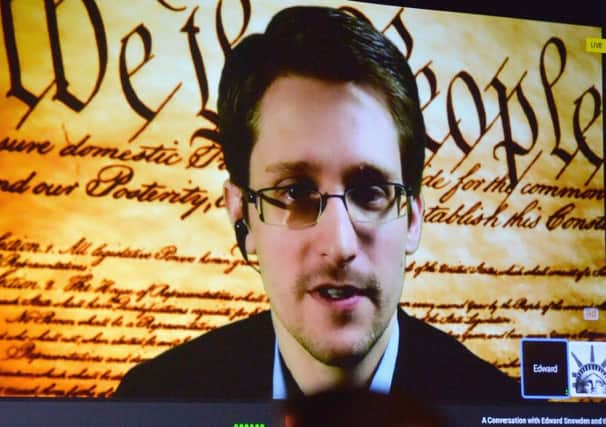Book review: No Place To Hide by Glenn Greenwald


No Place To Hide: Edward Snowden, NSA And The Surveillance State
Glenn Greenwald
Penguin, £20
Glenn Greenwald, a US civil rights lawyer turned journalist, made his name covering a scandal in 2005-06 over the US National Security Agency’s use of warrantless electronic eavesdropping. But that was small beer compared with his big story: last year’s Edward Snowden affair and the exposure of the NSA’s operation, detailed in a series of Guardian scoops.
Advertisement
Hide AdThis is Greenwald’s first full-length account. His contact with Snowden and meetings with him in Hong Kong in June 2013 are full of cloak-and-dagger details, such as that mobile phones can be stored in the freezer to prevent the CIA remotely activating them to serve as microphones.
He certainly struck gold. Snowden’s thousands of documents revealed how phone company Verizon had been ordered to hand over metadata on all calls originating in the US. It revealed the existence of PRISM, a vast programme harvesting data from all the main internet players. There is also a system that allows agents to search information on a given user’s emails, browsing history and the rest. The upshot is that, for example, in one period of around a month early in 2013, the US collected 97 billion emails and 124 billion phone calls globally. Its surveillance had become more extensive than that of any dictatorship.
“I realised,” Snowden tells Greenwald, “that they were building a system whose goal was the elimination of all privacy, globally.”
Snowden does seem credible. It’s clear that he’s a very different character to WikiLeaks’ erratic and egomaniacal Julian Assange: the former NSA operative comes across as thoughtful, calm and rational.
The biggest criticism has been, rather, that such leaks may benefit terrorists. Greenwald rejects this, claiming that leaking NSA secrets is very different to, say, revealing the identities of CIA agents. Much of the NSA’s spying — economic and diplomatic, including listening in on Angela Merkel’s phone — has nothing to do with national security. Nor did this vast system prevent, say, last year’s Boston marathon bombing.
But then Greenwald isn’t a man who brooks criticism. He is a former litigator, and it shows: there is no nuance or trace of humour in his writing. Everything is black and white: you either agree with him completely or you are an instrument of the surveillance state. That’s a shame, but certainly in exposing its extent, Greenwald and Snowden have done us all a service.